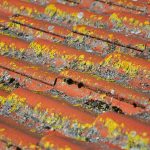If you want to invest in a property in Northern Cyprus then it is crucial to ensure that you do your homework, just as you would do if you were buying a property at home. It is no different in terms of ensuring that you are familiar with the buying procedure and know to look out for the differences in any legislation or tax requirements. This is a quick recap of things that must be noted to ensure a happy ending to any purchase of a property in Northern Cyprus.
There are various types of property and deeds for sale in Northern Cyprus. The first consideration, over and above all others, is to ensure any property purchase can be registered in your name and for that, you have to apply to the Turkish Council of Ministers for approval. It is key to note that foreigners are limited to a maximum size property of 0.33 acres (called one donum).
The procedure to obtain approval will take about 10 – 15 months unless you are a retired person in which case all that is required is a resident permit. Armed with that permit, it is possible to bring a full household of furniture into the country with only a tax of between 2 – 3% being levied on it.
The smartest thing that you can do is to establish a relationship with a good estate or property agent who knows the market in Northern Cyprus and that features properties that fit your budget range. A good agency, like Donaghy and Beyler not only has familiarity with the market but also has access to legal and other services that come recommended and who will be key in helping you through the buying process.
When you have found the property that you want, the first step is to check it out thoroughly to make sure that it is free from any encumbrances, charges, liens or debts and that all local taxes and community charges are paid to date. The fee for this is usually around £1250 – 1500. Once you have ascertained that all is as it should be then you make a verbal agreement to purchase and will be required to pay a deposit. At this point the property will be taken off the market and guaranteed sold to you at the fixed price agreed. The deposit is normally non-refundable. The exchange will take place approximately 1 to 2 weeks after acceptance.
Before you embark on the buying procedure, make sure that you have opened a bank account in Northern Cyprus. The property specialist agencies like Donaghy and Beylor can help you with this. Financial transactions will have to take place through this bank account in Northern Cyprus so it is necessary to ensure the account reflects required balances for transactions.
With regard to taxes, when buying a property in Northern Cyprus, you will have to pay a Land Registry Transfer fee. This is usually 6% though there is an option to take a lifelong exemption whereby you will only pay 3%. The VAT level is 5% but this is payable only if the vendor is classed as a professional. There is stamp duty to pay on property in Northern Cyprus. It is 0.5% of the contract price paid as long as paid within 21 days otherwise the charge will be 1.5%.
When it comes to title deeds, make sure you know what type of deed it is. A Turkish (Foreign) Freehold title deed confirms that the property belonged to Turkish Cypriots or any foreigners other than Greeks, prior to July 1974 (pre the 1974 Coup d’Etat in Cyprus, when Northern Cyprus came under Turkish rule).
A TRNC Freehold title deed will refer to a property that belonged to a Greek Cypriot pre 1974. Following the Coup d’Etat in 1974 the deeds were transferred to refugee Turkish Cypriot citizens in exchange for property left in Southern Cyprus.
You can lease land or property instead of purchasing one. However, the property types tend to be derelict houses that can be leased to foreigners who will do the renovations at their own expense and then hand it back to the authorities at the end of 49 years. With leasehold, a nominal amount of ground rent will be payable.
Your legal advisor will ensure that the title deeds are valid and once the necessary documents are signed, he can complete the process in your absence, done by giving him power of attorney for the duration of the sale period.
On the day of completion all monies are paid over and once notarised, a new title deed is issued and details are entered into the Land Registry. One note of wisdom: make sure that the land that you have bought is actually the land that you think it is! It is essential to check the sheet, plan or plot references and the site plan. Double check boundaries and look for locations of nearby roads and schools. Ensure there no noticeable differences in the topography. It is always better to be certain of every aspect relevant to your property purchase before you are committed, especially when purchasing property abroad and in a non-EU country.
Far from scaring anyone, knowing what to look for and ensuring all is in order gives you a helping hand that is invaluable especially if you are a first time buyer. Follow the guidelines, engage a reputable agency, use recommended legal and ancillary services and you won’t go wrong. Northern Cyprus is still a relatively unspoiled spot on the Mediterranean, has a lively expat community, a good choice of properties and has a very temperate climate. Pretty nice location in the sun for a holiday, retirement or investment home.
The Article is written by www.donaghyandbeyler.com providing Cyprus Properties and Cyprus Property. Visit http://www.donaghyandbeyler.com for more information on www.donaghyandbeyler.com Products and Services___________________________Copyright information This article is free for reproduction but must be reproduced in its entirety, including live links and this copyright statement must be included.www.donaghyandbeyler.com for more services!





